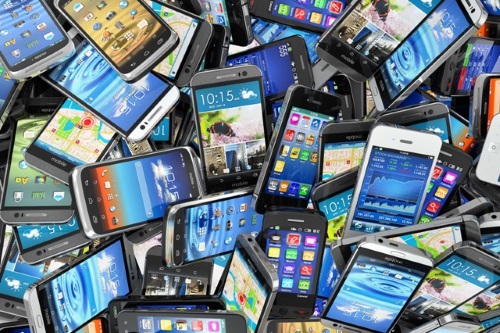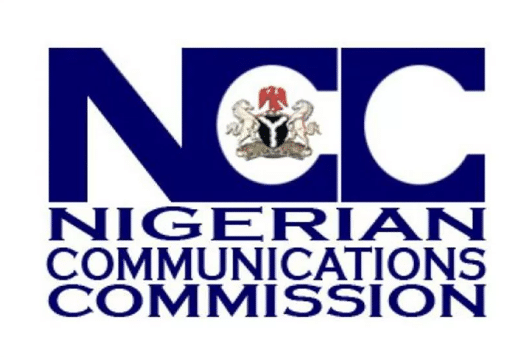Why counterfeiters still control 10% phone market share in Nigeria

It is now obvious the counterfeiters have taken dominance by controlling 10 percent of the phone market share in Nigeria with a spillover of negative economic impact of this ugly trend on the manufacturers of genuine products.
Their modus operandi impacts negatively on governments, authorised dealers and others in terms of brand devaluation, loss of revenue, copyright and trademark infringement, unfair competition, loss of tax, cost of compliance with applicable national legislation, national security and loss of employment opportunities.
Fake phone manufacturers and importers seem to be having upper hand in the current battle with such products’ regulators in Nigeria.
A source in the phone manufacturing business, the who prefers anonymity told Daily Times that counterfeiters might have taken over more than ten percent of the market share, and glaringly displaying the products at different areas like Computer Village- Ikeja and other environs.
“It is affecting a whole lot of things in this market. We hear of people complain about Poor Quality of Network Service (QoS), the activities of these phone fakers contribute a lot to that.
So, users of such phones are losers, government is losing revenue, we are losing the market too as original equipment manufacturers (OEM) and spells doom for the market.
“These guys used to occupy about five percent of the market, but I can authoritatively tell you that they have gone beyond ten percent of the market share.”
Daily Times recalls that the Association of Telecommunications Operators of Nigeria raised an alarm on the increasing rate of dumping fake mobile phones in the country and the urgency to curb the menance.
Mr. Olusola Teniola, President of ATCON disclosed that more than 20 mobile phone brands which names are yet to be made public in the country are not NCC type-approved and contribute significantly to the persistent poor quality of service (QoS).
According to him, the unregistered/unapproved brands have over 150 mobile phone models circulating in Nigeria.
He therefore called for more stringent measures to be taken to curb the counterfeiting of mobile phones in the country.
Speaking to Daily Times on the worrying state of affairs, Mr. Teniola said, “We plead with Government to put in place anti-counterfeiting measures such as the facilitation of integrated Web portal based IMEI-IMSI collection to stem the menace of substandard or unregistered mobile phones circulating in Nigeria with obvious consequences of poor quality of service, loss of revenue to the government, loss of business by OEMs and loss of jobs as well as in revenue to the Nigeria mobile market.
Investigation has revealed has shown that the fakers copy 100 percent of top phone brands in the market, selling same to end-users as the original.
It could be recalled that in January 2017, the Standards Organisation of Nigeria (SON), working with other law enforcement agencies arrested two Chinese nationals over increasing complaints about fake and substandard phones imported into Nigeria.
The Chinese, according to Osita Aboloma, director general of SON, imported fake and substandard mobile phones into the country.
Aboloma, who was represented by Bede Obayi, director Compliance of SON, during a recent enforcement exercise in Lagos by SON, said the Agency has continued to receive numerous complaints about KZG phones from unsuspecting consumers in the country.
Aboloma said “We have information on the activities of these Chinese people who are operating this KZG mobile here in Ikeja Lagos that people are complaining about the quality of their products and SON has to ensure that the quality of products sold in Nigeria is in compliance with the Nigeria industrial standards.
“Their attitude show that they know what they are doing here and they are not ready to talk, they are not ready to give us information about what they are doing here and their major warehouses.
Based on the information we have gathered and what we found on ground in the office and the documentation of importation indicates that he is one of the leading suppliers of sub-standard phones in Nigeria,” Obayi said.
It is trite to say the fact that there are fake phones in the market which implies there are originals too, but an average phone user in the market requires education to distinguish original from fake phones, but the manufacturers are not focusing on educating the customers.
Mr Ahmed Ojikutu, president of Computer and Allied Product Dealers Association of Nigeria (CAPDAN) agreed that the activities of the fakers are threats to OEMs, adding that the Association is going to launch a campaign with a free-toll line to be displayed for people to call-in and lodge complaints.
Nokia’s Vice President, West and Central Africa, James Rutherfoord, on the sidelines of the global launch of some of Nokia’s latest devices in Lagos, recently also lamented the preponderance of fake and substandard phones in the country, describing it as a ‘big monster that has become difficult to tame’.
Rutherfoord added that the firm was, however, collaborating with the mobile service providers and the relevant agencies to curb the menace, adding that the firm will step up campaign aimed at educating its customers in the country.
“Presence of fake mobile phones is a big problem in Nigeria but we have employed multi-pronged approach to it. One is to educate the consumer on all our materials.
We put our warrant stickers on it and also give them a careline where they can send SMS to check if their phone is fake or not.
We educate our partners and our dealers in the market. We have also, on more than one occasion, trained them and show them on how to differentiate the fake and the genuine from the pack. So we have a number of initiatives against fake products in the market,” he said.
According to him, the only security agency it is partnering with is the Nigeria Customs Service (NCS), the agency responsible for checking the goods that come to the country from abroad.
“We don’t really have partnership with security agents. The important agency to work with is the customs to help check the inflow of the devices into the country.
So we feel that is the point at which we need to work. On the other side, we are working with the operators to try and see what they can do about fake devices on their network because poor services too have been traced to fake phones,” he said.
He added that the firm was also collaborating with the Federal Government, through the Nigerian Communications Commission (NCC) to fight the menace through the registration of mobile devices in the country.
“We also trying to collaborate with government, specifically with the NCC on the registration of all devices in Nigeria,” he said.
Executive Vice Chairman of the Nigerian Communications Commission, Prof. Umar Danbatta, has said at a stakeholders meeting on combating counterfeit and sub-standard Information and Communications Technology devices in Abuja that between 15 percent and 20 percent of phones in the market are counterfeit.
He attributed the high incidence of substandard phones to affect both the quality of service in the telecommunications industry and the health of consumers.
Danbatta said, “Counterfeiting is a growing economic problem affecting a wide range of products. In the ICT sector, mobile phones are especially targeted with 250 million counterfeits sold annually.
“This number constitutes about 15 percent to 20 per cent of the global mobile phone market.
Apart from the obvious negative economic impact of this ugly trend on the manufacturers of genuine products; it also impacts negatively on governments, authorised dealers and others in terms of brand devaluation, loss of revenue, copyright and trademark infringement, unfair competition, loss of tax, cost of compliance with applicable national legislation, national security and loss of employment opportunities.
“This menace also poses danger to the health and safety of consumers and equally breaches the privacy of consumers.
For us we are very concerned with the negative effects on communication network operations as it concerns degrading equality of service delivery,” he said.
He noted that the damaging impact of the substandard products on the economy cannot be quantified in socio-economic terms.
He lamented the damaging effects of the products on a broad spectrum of the national life, adding that the ugly development poses grave danger to the health, safety and privacy of buyers and the nation’s environment.
Speaking at the event, Director, EMEA for Mobile Manufacturers Forum, Mr. Thomas Barmuller, said 21 percent of substandard and counterfeit mobile phones are found in Africa and the Middle East.
According to Barmuller, counterfeit phones and ICT products come with real threat, put personal and private information at risk and also used as a tool for transmission of deadly viruses.
Commenting on quality of service, Barmuller affirmed that one in four drop calls is caused by fake phones, adding that fake phones cause delay in handover during mobile communication by 41 percent while every third handover actually fails.
According to him, investigations has shown that the incidence of malware, spyware and SMS Trojans has increased dramatically especially with the usage of fake smart phones.
He however called for increased consumer education through communication strategy both at the national and regional levels, to create awareness on the negative effects of counterfeit phones so as to enable consumers, manufacturers and operators link to a trustworthy source.
He added that, “it is necessary to work with stake holders to address the situation by developing communication campaigns, build awareness and support reforms in key markets.”
Counterfeiters now have also globalized successfully, free from tariffs, quotas and working visas; united by the desire for a quick buck.
The Former Director General, Standard Organisation of Nigeria, SON, Joseph Odumodu, stated in an interview in one of the National Daily in August 11, 2014.
“In America, there are one dollar shops and one pound shops in Europe where cheap products are sold. Anybody that goes there knows the quality of goods he is buying as well as what to expect.
But, in Nigeria people go to Alaba market or Computer Village and buy all kinds of products without knowing the quality of what they are buying.
Someone might be buying products that bear the label of the original without knowing he is buying a counterfeit product.
“The country has a very weak regulatory framework. Our borders are porous. The level of ignorance among consumers is very high.
The level of corruption too is very high. If all these things are considered, one must be a magician to make a success of regulation and enforcement in this environment.”
Aletor Samuel, a trader in Phone accessories in Lagos informed Daily Times that there are situations where products in the market do not have names, only for the distributor to give it a brand name it fancies to hoodwink the customers.
The Nigerian Communications Commission (NCC) said that it would take necessary measures to protect the nation from being a dumping ground for fake cell phones.
Nigerian Communications Commission (NCC) also urged phone subscribers in the country to ensure that they use only type approved handsets.








